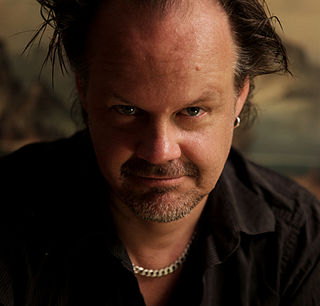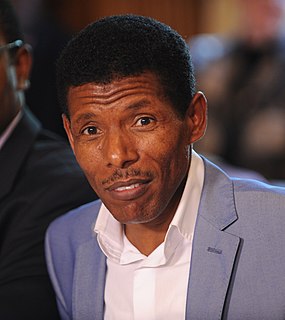A Quote by Marya Hornbacher
People with eating disorders tend to be very diametrical thinkers – everything is the end of the world, everything rides on this one thing, and everyone tells you you're very dramatic, very intense, and they see it as an affectation, but it´s actually just how you think. It really seems to you that the sky will fall if you are not personally holding it up. On the one hand, this is sheer arrogance; on the other hand, this is a very real fear. And it isn't that you ignore the potential repercussions of your actions. You don't think there are any. Because you are not even there.
Quote Topics
Actions
Actually
Affectation
Any
Arrogance
Because
Dramatic
Eating
Eating Disorder
End
End Of The World
Even
Everyone
Everything
Fall
Fear
Hand
Holding
How
Ignore
Intense
Just
One Thing
Other
Our Actions
People
Personally
Potential
Real
Really
Repercussions
Rides
See
Seems
Sheer
Sky
Tells
Tend
Thing
Think
Thinkers
Up
Very
Will
World
Your
Related Quotes
• Eating disorders are addictions. You become addicted to a number of their effects. The two most basic and important: the pure adrenaline that kicks in when you're starving—you're high as a kite, sleepless, full of a frenetic, unstable energy—and the heightened intensity of experience that eating disorders initially induce. At first, everything tastes and smells intense, tactile experience is intense, your own drive and energy themselves are intense and focused. Your sense of power is very, very intense. You are not aware, however, that you are quickly becoming addicted.
That tendency of social thought to generalize, to describe a leading tendency in a society in such a way that it seems that everything falls within its iron laws, is very common. Of course our own experience tells us that life is not as monochrome as these thinkers depict it. On the other hand they are very valuable because they alert us to transformations we are likely to take for granted.
I don't think she [Marilyn Monroe] saw herself as victimized and a sex object. She knew how to contend with it. I'm sure she was no fool about it. On the one hand, it was very flattering and great; on the other hand, it was probably awful and could be very lascivious and very terrible. But I think a lot of women just wanted to be like her. And that's still true today.
Even bright people are going to have limited, really valuable insights in a very competitive world when they're fighting against other very bright, hardworking people. And it makes sense to load up on the very few good insights you have instead of pretending to know everything about everything at all times.
I'm very interested in the distance and the space between those two poles: very concrete, song-based stuff on the one hand and very improvisational, abstract stuff on the other. I don't see any reason music should exclude one or the other, and I think the pairing of them together makes for very interesting music in a lot of ways.
Teachers, who are really good create that environment where you can be very satisfied by the process of learning. If you do something and you find it a very satisfying experience then you want to do more of it. The great teachers somehow convey in their very attitude and their words and their actions and everything they do that this is an important thing you're learning. You end up wanting to do more of it and more of it and more of it. That's a real talent some people have to convey the importance of that and to reflect it back to the students.
But I really think it's a very unfortunate part of our judicial system and I would feel much, much better if more states would really consider whether they think the benefits outweigh the very serious potential injustice, because in these cases the emotions are very, very high on both sides and to have stakes as high as you do in these cases, there is a special potential for error. We cannot ignore the fact that in recent years a disturbing number of inmates on death row have been exonerated.
I think that it is very interesting to write about a team because a team is a group of people who work in very close quarters and have very intense relationships so - in my days of playing sports, I was very rarely on a team that did not have it's own peculiar dynamic, and you wind up having very intense feelings for good and for bad about these people with whom you spend many hours a day.
I've gotta be honest, it is a little of a mystery to me. I consider myself very sentimental, very sensitive, but obviously my outward appearance is a bit scruffy-haired, and I have a general tendency toward snarling at people, and a sort of misanthropic nature. Maybe that is what people actually read. I do actually believe that misanthropy and sensitivity go hand in hand, because I have a tremendous disappointment in the ways of the world.
I think, as an actor, it is good to feel the fear of failing miserably. I think you should take that risk. Fear is a necessary ingredient in everything I do. But if I do 'Hamlet,' it will probably be in a small theater on a small stage, and it will have to be very, very soon because I'm getting a little long in the tooth for it.
The fact is that you can be a Nazi living in a little trailer in the middle of Montana and as awful as everything you stand for is, you're basically an angry guy in a shack. Scientology, on the other hand, is a multi-billion dollar institution with tentacles that reach into lots of countries. I don't think it's as powerful as many people think it is, but compared to the sorts of people I've dealt with, it is a force to be reckoned with. It has global influence and very very deep pockets.


































